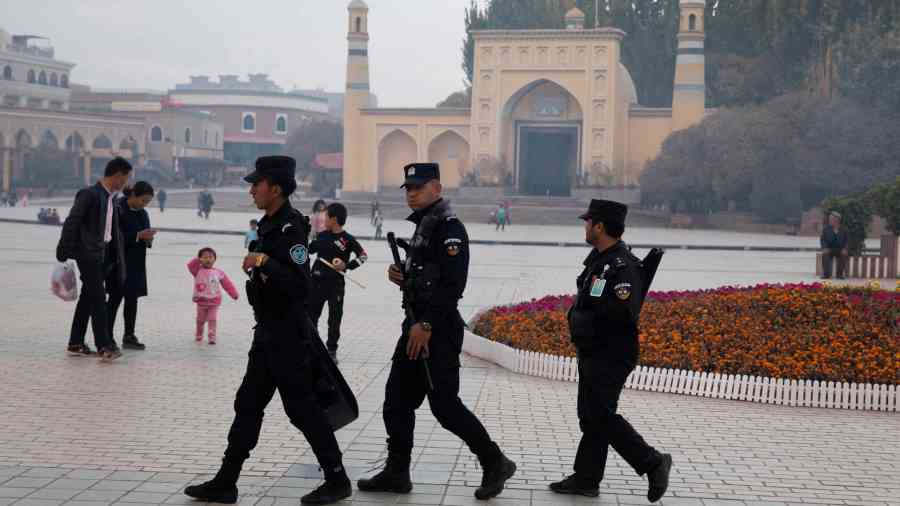The EU said on Wednesday that it aimed to ban all goods that were the product of forced labour, a move that analysts predicted could hit exports from Xinjiang, the Chinese region where Beijing is believed to be forcing ethnic Uyghurs to work in camps.
The European proposal followed a US policy that became law in December that explicitly singled out goods from Xinjiang.
The EU plan did not mention Xinjiang, but China is widely seen as a target of the bill following increasing pressure within the bloc to address human rights violations by Beijing.
The US law imposes a blanket ban on products from Xinjiang. By contrast, the European bill would apply to all goods circulating inside the bloc deemed to have been created with forced labour, without specifying particular countries or sectors, which analysts say reflects wariness over antagonizing Beijing and breaching World Trade Organisation rules on trade.
Li Yong, an analyst with the China Association of International Trade, a government-funded research group in Beijing, told The Global Times, a Communist Party-owned daily, that the European proposal reflected “the deep-rooted racial discrimination and prejudice of the West.”
Valdis Dombrovskis, the EU trade chief, told reporters that the European Commission, the bloc’s executive body, which drafted the proposal, was “very careful to make sure that what we are doing is compatible with the WTO rules and obligations in our bilateral deals.”
The European rules, which are expected to become law next year, come at a critical time for victims of forced labour.
Compounding crises, including the Covid-19 pandemic, climate change and armed conflicts have led to a record increase in modern slavery.
New York Times News Service










